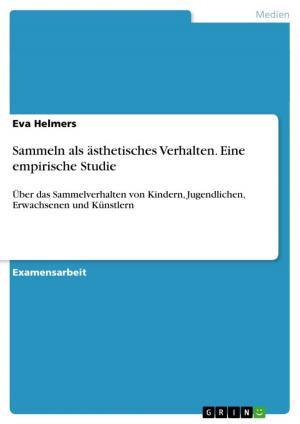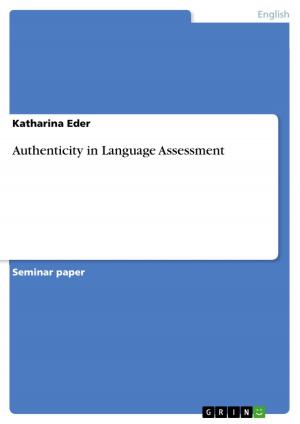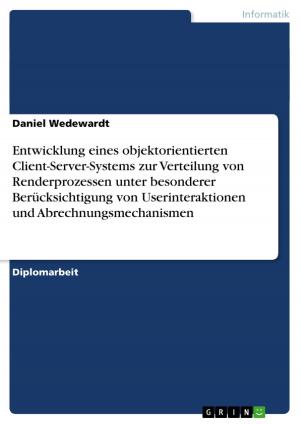| Author: | Ecaterina Volosin | ISBN: | 9783640192045 |
| Publisher: | GRIN Verlag | Publication: | October 20, 2008 |
| Imprint: | GRIN Verlag | Language: | English |
| Author: | Ecaterina Volosin |
| ISBN: | 9783640192045 |
| Publisher: | GRIN Verlag |
| Publication: | October 20, 2008 |
| Imprint: | GRIN Verlag |
| Language: | English |
Seminar paper from the year 2007 in the subject Business economics - Miscellaneous, grade: 75% (1,0), University of Glamorgan (Business School), course: Issues in Auditing, 18 entries in the bibliography, language: English, abstract: This essay deals with the demand for audit functions and the resulting expectations in auditors' work. The credibility of mandated disclosure of financial statements is the central issue for regulatory bodies attempting to protect the public interest. This requirement gives rise to a demand for auditing services. Since the beginning of the audit profession theories were made in order to specify and determine the audit functions. The 'agency-theory' is associated with the conflicting interests of shareholders and management of a company, suggesting that the less-informed party (shareholders) will have a demand for information that monitors the behaviour of the better-informed manager. Thus, audits of financial reports would be one form of such information, providing the shareholders with independent assurance about the ongoing developments. The 'lending credibility theory' is similar to the agency-theory and states that audited financial statements can enhance stakeholders' faith in management's stewardship. Another theory is the 'theory of inspired confidence', whereby stakeholders demand accountability from the management as an exchange for their contribution to the company. The last discussed theory is the 'policeman theory' which narrows auditor's responsibilities to prevention and detection of fraud. All these theories describe the expectations the stakeholders have of the auditors, including protection against fraud, warning of future insolvency, general reassurance of financial well-being, safeguards for auditor independence and understanding of audit reports. Although these expectations seem to be rather natural, however, an audit expectations gap does exist based mostly on the diversity of views about the audit function. The gap exists between what the public expects the auditor to do and what the auditor can and should do. Several suggestions were made to narrow the expectations gap, as well as providing statutes in order to describe audit functions especially concerning the responsibility to detect and report errors and fraud.
Seminar paper from the year 2007 in the subject Business economics - Miscellaneous, grade: 75% (1,0), University of Glamorgan (Business School), course: Issues in Auditing, 18 entries in the bibliography, language: English, abstract: This essay deals with the demand for audit functions and the resulting expectations in auditors' work. The credibility of mandated disclosure of financial statements is the central issue for regulatory bodies attempting to protect the public interest. This requirement gives rise to a demand for auditing services. Since the beginning of the audit profession theories were made in order to specify and determine the audit functions. The 'agency-theory' is associated with the conflicting interests of shareholders and management of a company, suggesting that the less-informed party (shareholders) will have a demand for information that monitors the behaviour of the better-informed manager. Thus, audits of financial reports would be one form of such information, providing the shareholders with independent assurance about the ongoing developments. The 'lending credibility theory' is similar to the agency-theory and states that audited financial statements can enhance stakeholders' faith in management's stewardship. Another theory is the 'theory of inspired confidence', whereby stakeholders demand accountability from the management as an exchange for their contribution to the company. The last discussed theory is the 'policeman theory' which narrows auditor's responsibilities to prevention and detection of fraud. All these theories describe the expectations the stakeholders have of the auditors, including protection against fraud, warning of future insolvency, general reassurance of financial well-being, safeguards for auditor independence and understanding of audit reports. Although these expectations seem to be rather natural, however, an audit expectations gap does exist based mostly on the diversity of views about the audit function. The gap exists between what the public expects the auditor to do and what the auditor can and should do. Several suggestions were made to narrow the expectations gap, as well as providing statutes in order to describe audit functions especially concerning the responsibility to detect and report errors and fraud.















